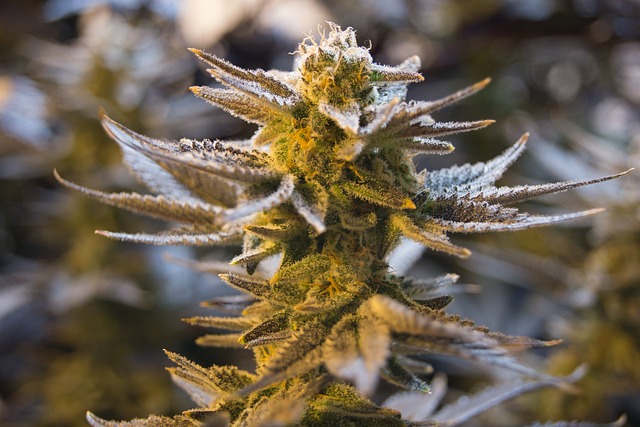Looking for Lift? High-THCA Flowers Near Me

thca near me
Discovering the Prospective of THCa: Is THCa just as good as THC?
In the world of marijuana, THC preponderates as the cannabinoid most searched for its psychedelic results. Nonetheless, there’s a lesser-known gamer in the mix– THCa. Found generously in raw marijuana, thca near me has been obtaining focus for its potential healing advantages and unique residential properties. However the concern stays: Is THCa as good as THC? Let’s delve into the details of both cannabinoids to uncover the truth behind this query.
Comprehending THCa and THC:
THCa, or tetrahydrocannabinolic acid, is the forerunner to THC, the popular psychedelic compound in marijuana. In its raw type, cannabis mainly has THCa instead of THC. Just through decarboxylation, commonly by heating, does THCa convert into THC, the substance responsible for the euphoric high related to cannabis usage.
THCa is found in the trichomes of the marijuana plant, those little resinous glands that create cannabinoids and terpenes. Unlike THC, THCa does not induce psychoactive effects, meaning it won’t get you high when consumed in its raw state. Instead, THCa supplies potential restorative advantages without the intoxicating effects typically related to THC intake.
Prospective Advantages of THCa:
Research study right into the prospective advantages of THCa is still in its early stage, but early searchings for recommend promising therapeutic residential or commercial properties. Some researches indicate that THCa may possess anti-inflammatory, neuroprotective, and antiemetic homes, making it a prospective prospect for different clinical applications.
One study released in the British Journal of Pharmacology found that THCa showed considerable anti-inflammatory effects in a computer mouse version of severe swelling. One more research published in the journal Future Medicinal Chemistry suggested that THCa might have neuroprotective homes, potentially offering advantages for problems like Parkinson’s condition and Alzheimer’s illness.
In addition, THCa has shown guarantee as an antiemetic, suggesting it might help reduce queasiness and vomiting. This residential property could be especially advantageous for people going through radiation treatment or experiencing nausea because of various other clinical problems.
THCa vs. THC: Trick Distinctions:
While THCa and THC share a comparable molecular framework, they put in different impacts on the body as a result of their distinct interactions with the endocannabinoid system (ECS). THC binds straight to cannabinoid receptors in the ECS, primarily activating the CB1 receptor, which is in charge of the psychoactive impacts of marijuana.
On the other hand, THCa does not straight bind to cannabinoid receptors in the same way as THC. Rather, THCa connects with the ECS via indirect mechanisms, modulating various physiological processes without generating psychoactive results. This distinction in binding affinity and activation pathways accounts for the contrasting impacts of THCa and THC.
Additionally, THCa shows better security than THC, particularly when exposed to heat or light. This security allows THCa to retain its healing residential or commercial properties also after processing, making it an eye-catching choice for medical use.
Discovering the Entourage Result:
One principle that further complicates the contrast between THCa and THC is the entourage effect. The entourage result suggests that the consolidated activity of numerous cannabinoids, terpenes, and other compounds discovered in cannabis creates a synergistic effect that improves therapeutic end results.
In this context, THCa plays a vital function as one of the many elements adding to the entourage impact. When consumed alongside other cannabinoids and terpenes, THCa may improve the overall therapeutic effectiveness of cannabis-based items, giving a more thorough spectrum of advantages than isolated THC alone.
Debunking THCa: Does THCa Generate a High?
In the world of marijuana, the spotlight frequently beams on THC (tetrahydrocannabinol) as the key perpetrator in charge of the euphoric high connected with marijuana usage. Nevertheless, there’s one more cannabinoid that often flies under the radar– THCa (tetrahydrocannabinolic acid). Found abundantly in raw cannabis, THCa elevates intriguing concerns, particularly regarding its psychedelic homes. The burning query continues: Does THCa produce a high? Let’s start an expedition of THCa’s characteristics to decipher the truth behind this enigmatic substance.
Comprehending THCa:
THCa, or tetrahydrocannabinolic acid, is the forerunner to THC, the popular psychedelic component discovered in cannabis. In its raw form, cannabis primarily contains THCa rather than THC. Just via a process called decarboxylation, normally attained through heat exposure, does THCa convert into THC, thus opening its psychoactive possibility.
THCa lives mostly in the trichomes of the cannabis plant– those small, glandular structures that embellish its surface area. Unlike THC, THCa does not cause envigorating effects when consumed in its raw state. Instead, it offers a variety of prospective restorative advantages without the psychoactive high generally related to THC intake.
Possible for Psychoactivity:
While THCa itself is non-psychoactive, some argument borders its possible to produce a high under details conditions. This debate originates from anecdotal reports and emerging research suggesting that taking in huge amounts of raw marijuana, rich in THCa, may bring about subtle psychoactive effects in some people.
Although THCa does not straight bind to cannabinoid receptors likewise as THC, it connects with the endocannabinoid system (ECS) via indirect systems. Some researchers think that high doses of THCa, specifically when consumed alongside various other cannabinoids and terpenes, may elicit moderate psychedelic effects via inflection of ECS signaling paths.
Furthermore, specific level of sensitivity to cannabinoids can vary commonly, influencing the regarded psychoactivity of THCa. Elements such as metabolism, tolerance, and genetic proneness may all contribute in identifying how a specific responds to THCa intake.
Potential Therapeutic Advantages:
Despite its non-intoxicating nature, THCa boasts a plethora of possible therapeutic benefits. Research suggests that THCa may possess anti-inflammatory, neuroprotective, and antiemetic residential or commercial properties, making it an encouraging prospect for different medical applications.
Studies have revealed that THCa exhibits considerable anti-inflammatory effects, potentially offering alleviation for conditions identified by inflammation, such as joint inflammation and inflammatory digestive tract illness. Additionally, THCa has shown neuroprotective buildings in preclinical researches, suggesting potential advantages for neurological conditions like Parkinson’s disease and multiple sclerosis.
Moreover, THCa reveals pledge as an antiemetic, efficiently minimizing queasiness and throwing up connected with chemotherapy and various other clinical treatments. This building could offer much-needed relief for patients going through extensive clinical interventions.
Decoding the THCa Experience:
For those interested regarding exploring the possible effects of THCa without experiencing the psychoactive high related to THC, consuming raw cannabis or THCa-rich products might offer a viable alternative. Raw cannabis enthusiasts usually advocate for juicing fresh cannabis leaves or including them right into smoothie mixes to harness the healing possibility of THCa without the psychoactive adverse effects.
In addition, THCa-rich items, such as casts, topicals, and edibles, use alternative consumption approaches for those looking for to discover the healing benefits of THCa. These products provide a hassle-free means to incorporate THCa right into everyday wellness routines without the danger of drunkenness.
Final thought:
Finally, THCa presents an interesting quandary in the realm of cannabis science. While it does not generate a high in its raw kind, emerging evidence suggests that high doses of THCa might yield refined psychoactive effects under particular situations. However, THCa supplies a wide range of possible restorative benefits, varying from anti-inflammatory and neuroprotective properties to antiemetic effects.
As research study right into THCa remains to advance, a much deeper understanding of its devices of action and potential psychoactivity will most certainly arise. Whether seeking remedy for inflammation, neurodegeneration, or nausea, THCa-rich items supply an encouraging avenue for expedition within the world of cannabis therapies.
